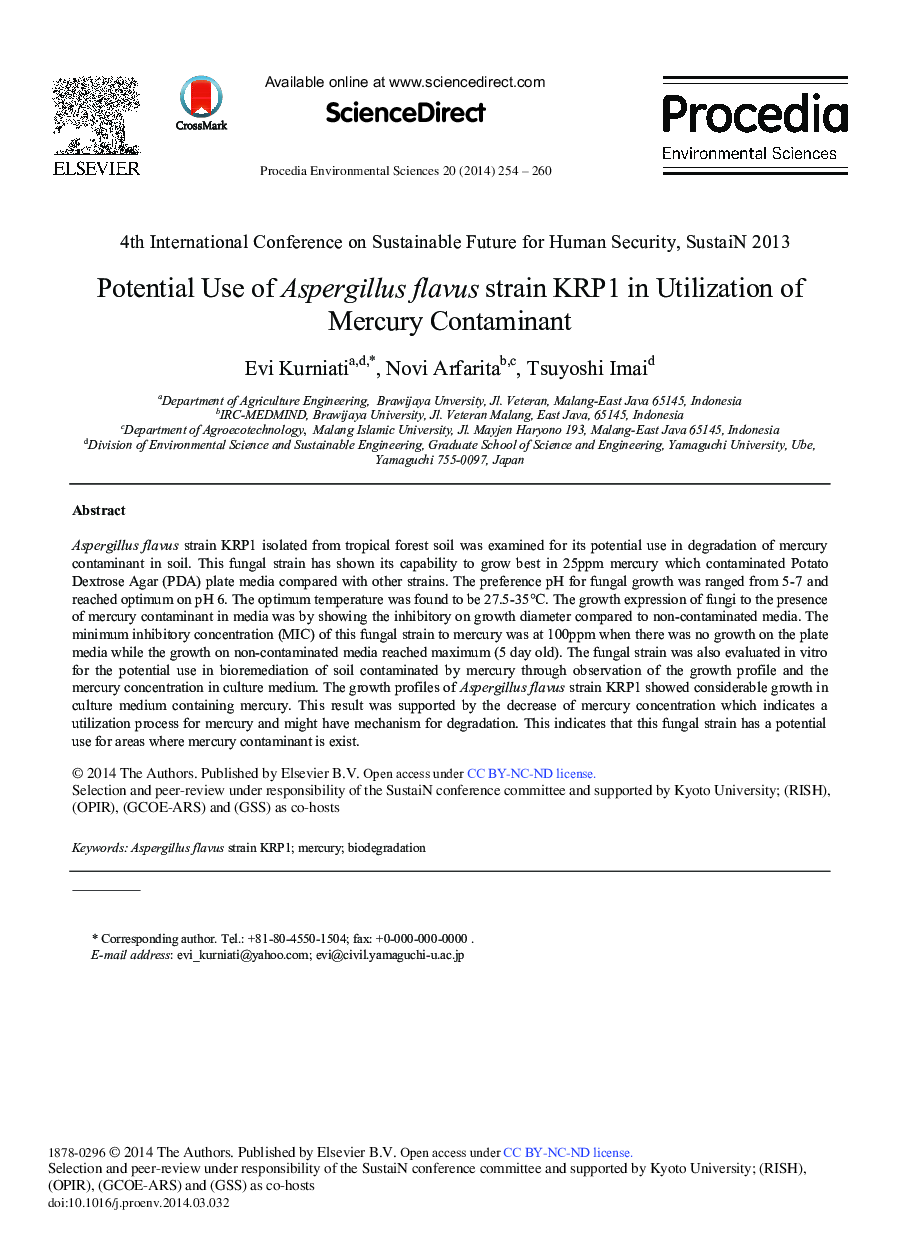| کد مقاله | کد نشریه | سال انتشار | مقاله انگلیسی | نسخه تمام متن |
|---|---|---|---|---|
| 4402224 | 1618624 | 2014 | 7 صفحه PDF | دانلود رایگان |

Aspergillus flavus strain KRP1 isolated from tropical forest soil was examined for its potential use in degradation of mercury contaminant in soil. This fungal strain has shown its capability to grow best in 25 ppm mercury which contaminated Potato Dextrose Agar (PDA) plate media compared with other strains. The preference pH for fungal growth was ranged from 5-7 and reached optimum on pH 6. The optimum temperature was found to be 27.5-35 °C. The growth expression of fungi to the presence of mercury contaminant in media was by showing the inhibitory on growth diameter compared to non-contaminated media. The minimum inhibitory concentration (MIC) of this fungal strain to mercury was at 100 ppm when there was no growth on the plate media while the growth on non-contaminated media reached maximum (5 day old). The fungal strain was also evaluated in vitro for the potential use in bioremediation of soil contaminated by mercury through observation of the growth profile and the mercury concentration in culture medium. The growth profiles of Aspergillus flavus strain KRP1 showed considerable growth in culture medium containing mercury. This result was supported by the decrease of mercury concentration which indicates a utilization process for mercury and might have mechanism for degradation. This indicates that this fungal strain has a potential use for areas where mercury contaminant is exist.
Journal: Procedia Environmental Sciences - Volume 20, 2014, Pages 254-260